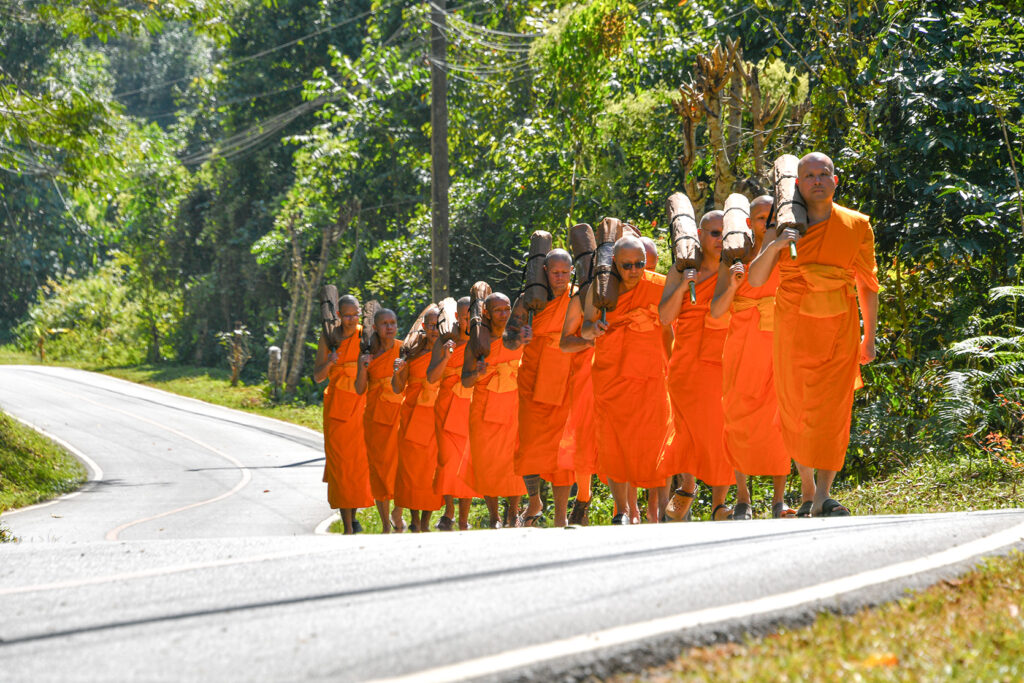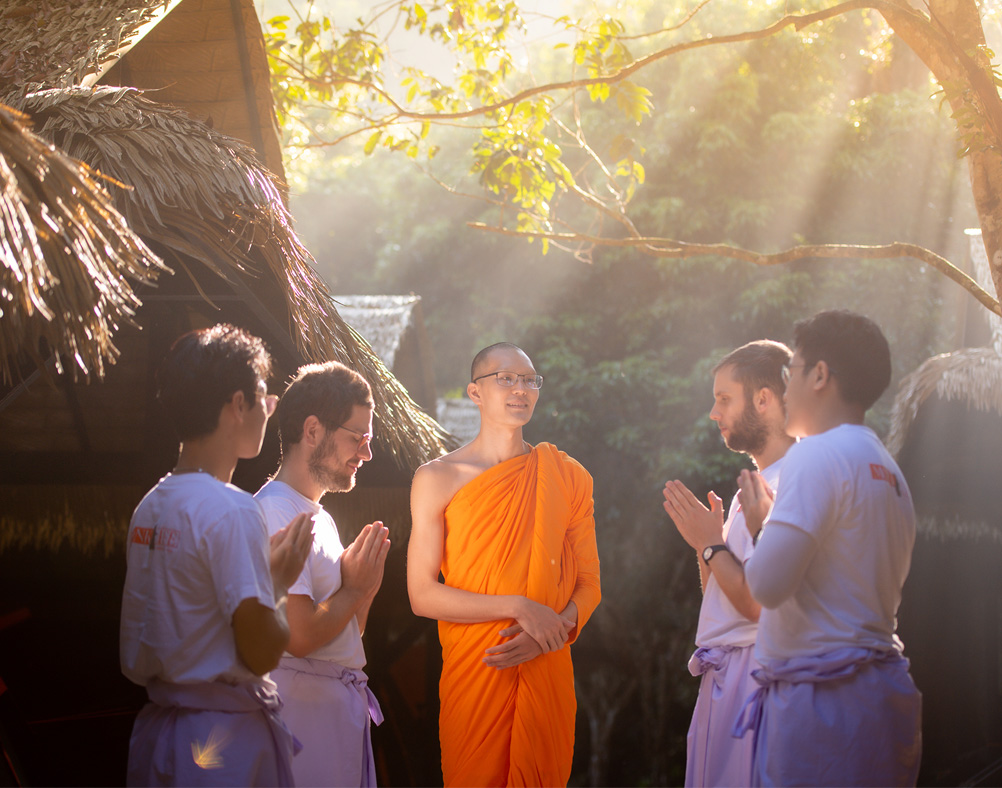
The Fundamental Teaching of Buddhism
The threefold practice of Buddhism consists of training in higher virtue, higher mind, and higher wisdom.
Completion of this training leads to the abandonment of lust, hatred, and delusion.
During the lifetime of the Lord Buddha, many rules were established in the Sangha. These are reflected in the Pali Canons, particularly in the Vinaya-Pitaka (The Basket of Discipline), under the title of “The Patimokkha”.
The Patimokkha is the basic code of monastic discipline, consisting of 227 rules for fully ordained monks (bhikkhus).
MEDITATION
Meditation is the heart of monkhood. Prescribed by the Buddha as the main practice, meditation purifies and quiets the mind, and deepens one’s wisdom. As a fundamental pillar, it will be the main focus of the program. We practice the Sati & Sabai method taught by most Venerable Luang Bu Wat Paknam, a method with emphasis on placing one’s attention at the center of the body while maintaining the proper balance of relaxation and concentration.
A simple yet effective method whose continued practice will deepen inner peace and happiness, and heal the body and mind.
Ordinants do not require any prior knowledge or skills. There will be four guided meditation sessions daily, and mentor monks are available for questions throughout the day.
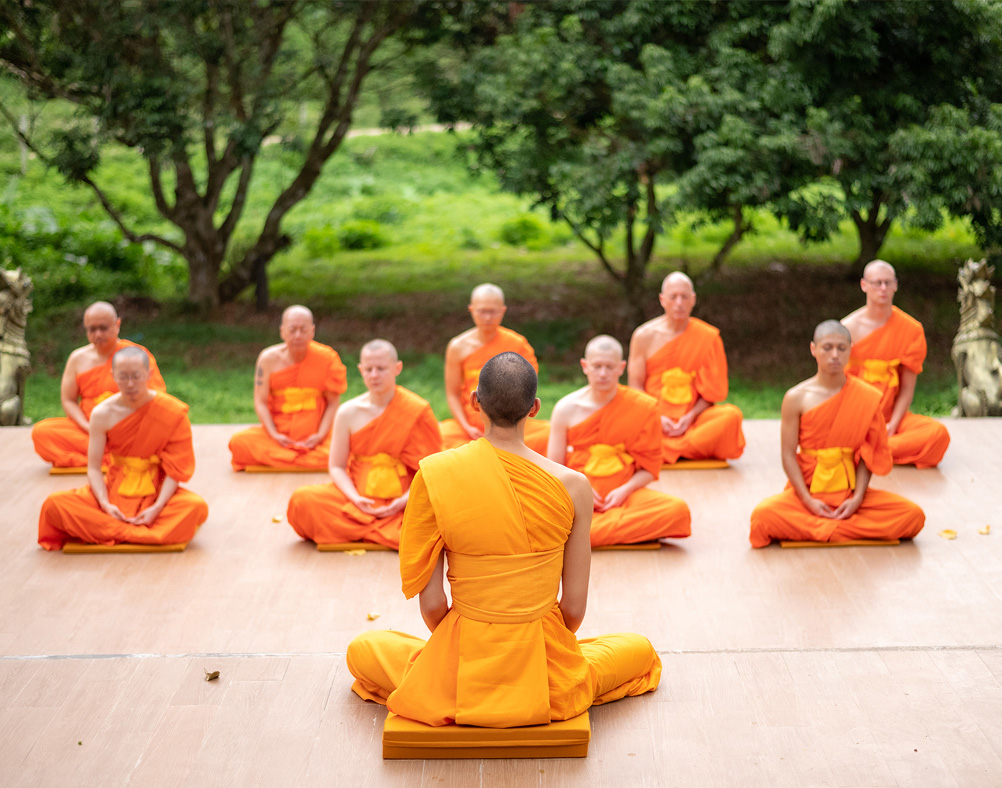
Understanding The Monastic Precepts
Important Precepts to Keep in Mind The Parajikas or Defeats
1. Should Abhikkhu (Monk) engage in sexual intercourse, even with an animal, is defeated and no longer affiliated.
2. Should any bhikkhu, in what is considered theft, take what is not given from an inhabited area or the wilderness – is defeated and no longer in affiliation.
3. Should any bhikkhu intentionally deprive a human being of life, search for an assassin for him, praise the advantages of death, or incite him to die (saying): “My good man, what use is this evil, miserable life to you? Death would be better for you than life”; he also is defeated and no longer in affiliation.
4. Should any bhikkhu lie and falsely claim to be in a superior human state with noble knowledge and vision, he is also defeated and no longer in affiliation.
Sanghadisesa
The common Sanghadisesas:
1. Intentional emission of semen, except while dreaming.
2. Should any bhikkhu engage in bodily contact with a woman – holding her hand, a lock of her hair, caressing any of her limbs, etc.
3. Should any bhikkhu address offensive words to a woman alluding to sexual intercourse.
4. Should any bhikkhu speak in the presence of a woman in praise of ministering to his sensuality or allude to sexual intercourse.
The Dhammadayada
The participants in the Monk Life Project are called Dhammadayadas or “Heirs to The Dhamma”. He is one who studies practices and promotes the Dhamma. The Dhammadayada must strictly follow the Buddha’s teachings, by adopting a respectable behavior, sacrificing personal desires, and cultivating indifference to fame and fortune. All the while developing the Paramita. Paramita translates to “perfections” and describes the ten virtues great beings possess.
ORDINATION
“The life of a householder is a narrow path which attracts dust. The ordained life is a spacious path.”
The Lord Buddha
Ordination is a process whereby an individual vows to wholly undertake the practice prescribed by the Buddha and transcend the status of lay-follower, to become a part of the Triple Gem. Shedding the responsibilities of lay life and adopting a simple life of practice, a monk is provided with the basic necessities of clothing, food, shelter, and medicine.
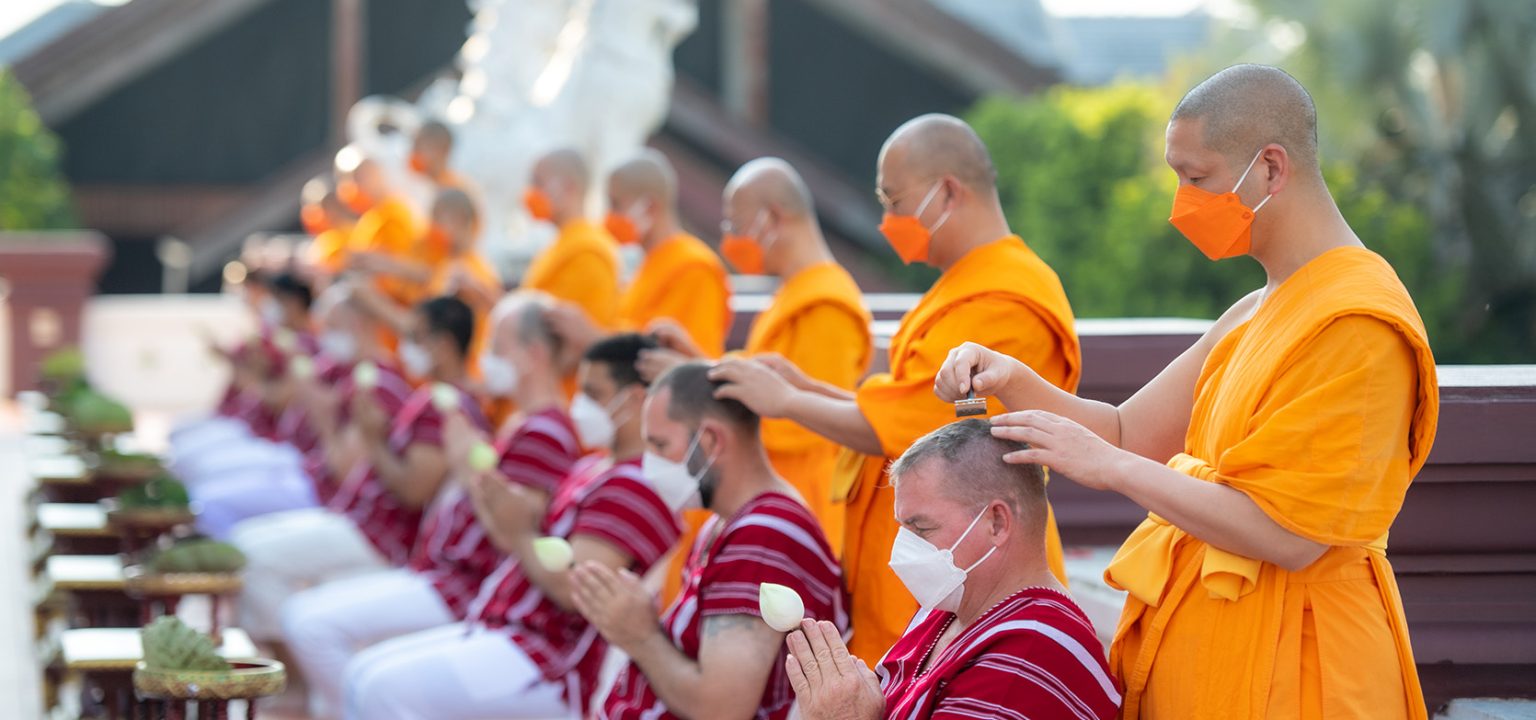
THE IMPORTANCE OF ORDINATION
As a cornerstone of Buddhism, ordination has provided many men with the teachings of morality and meditation, as well as the opportunity and knowledge of a contemplative life whose lineage traces back to the Buddha himself.
The wisdom gained from the practice becomes a foundation of peace in lay life, while the deeper pursuit of long-term monkhood bears fruits supreme and sublime.
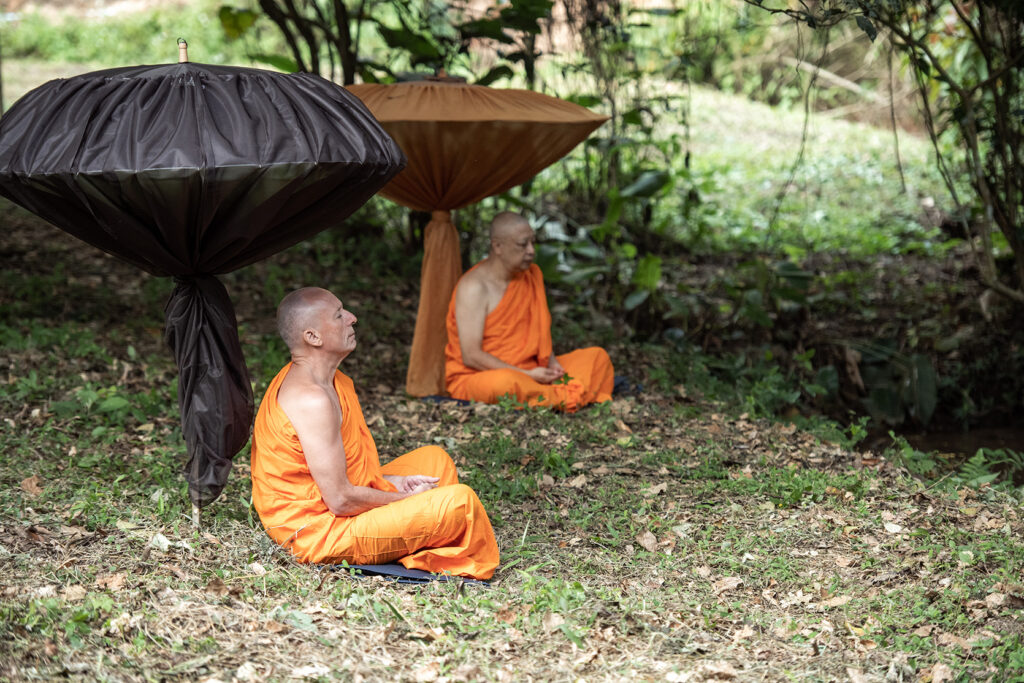
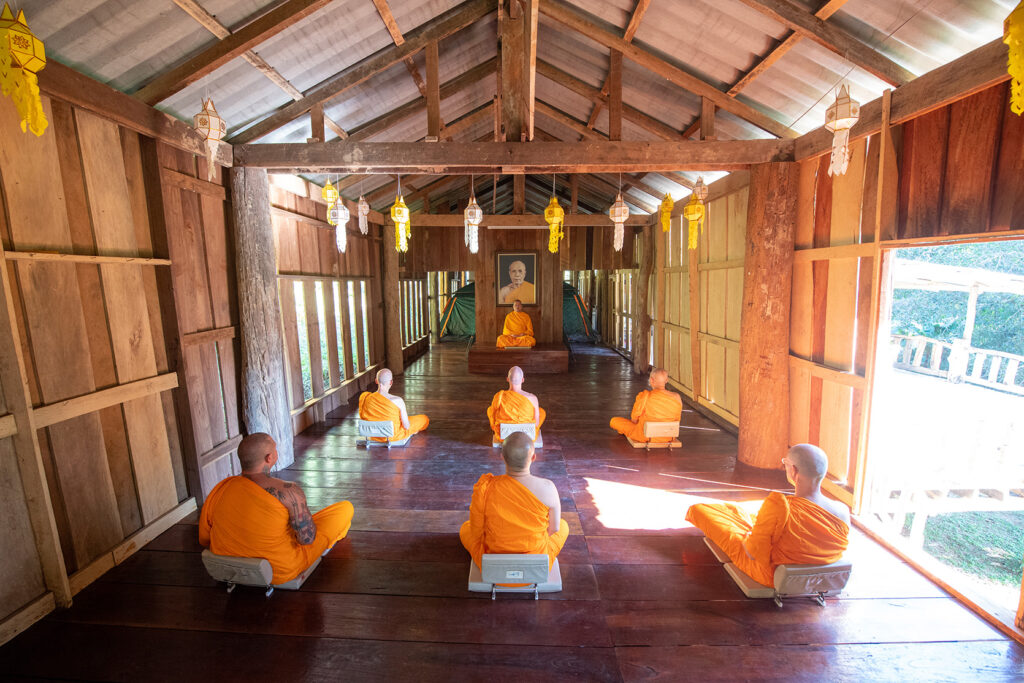
QUALIFICATIONS FOR ORDINATION
• Male of at least 20 years (under 20 and above 16 years will be ordained as a novice).
• Must not have committed a Parajika.
• Must not have a contagious disease (Leprosy, Measles, Skin Fungus, etc.).
• Must not be a wanted criminal.
• Must be free of government service.
• Must not be handicapped, blind, or deaf.
MONASTIC RESPONSIBILITIES
The Buddha required monastics to follow several daily duties, the main ones being:
• Alms round
• Temple cleaning
• Confession
• Chanting and meditation
• Reflection
• Caring for the Preceptor (Senior and teaching monks in practice)
• Self-maintenance
• Dhamma studies
• Behavior worthy of respect
